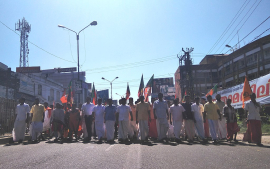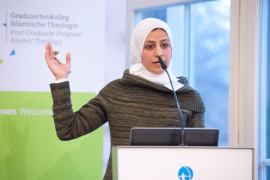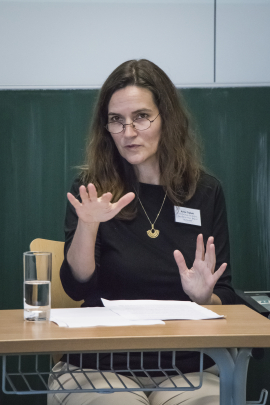
|
Wednesday Weekly 06 March 2019
|
|
|
|
|
|
Religion and Medicine in Japan Katja Triplett has added an article titled Religion and Medicine in Japan to our Companion to the Study of Secularity. She provides an historical overview of the development of the relationship between religion and medicine in Japan from the Asuka period (538-710), when Buddhism was officially introduced, to the 20th century. It sheds light, among other things, on the impact of Chinese medicine as well as European influences on the medical system in Japan and traces the change in the relationship between two distinct but not necessarily separate spheres.
|
|
|
|
|

|
Women Entry in Sabarimala Temple: State, Judiciary, and ReligionIn our Bulletin, Roopesh OB comments on the protests against the recently issued verdict which allows women to enter the Sabarimala Temple in Kerala. He points out that this is more than a conflict between political and religious order.
|
|

|
The Political Appeal of "European" ImamsLena Dreier uses the same forum to discuss the efforts of some European states, recently especially France, to guide the trainings of imams - illuminating the discussion against the background of German attempts to do so.
|
|
|
|
|

|
Online Discussion: The Vocabulary of Secularism in Iran On 15 March the Institute for the Study of Muslim Civilisations of the Aga Khan University will hold a roundtable discussion titled Forty Years On. The Vocabulary of Secularism in Iran in London. It is possible to watch the talk online, to do so please register here. For personal attendance, please register here.
|
|
|
Symposium on "The Folly of Secularism"On 01 April 2019, Yaacov Yadgar will hold a symposium on The Folly of Secularism. Dialogues on the theopolitics of the nation-state: Israel in a wider context at St. Antony’s College of Oxford University. The symposium starts from the assumption that the secularist discourse actively hides the theopolitical nature of the modern nation-state, justifying the violence of the state as necessary and rational, while delegitimizing others ideational claims for (political) truth as irrational and politically illegitimate. Structured into three sessions, the symposium will tie into one event or discourse several threads emanating from this critique: A deconstruction and reconsideration of the conceptual duality of “religion and politics”; a critique of the notion of liberal secularism; and a reconsideration of the case study of Israel (and Judaism).
|

|
|
|





